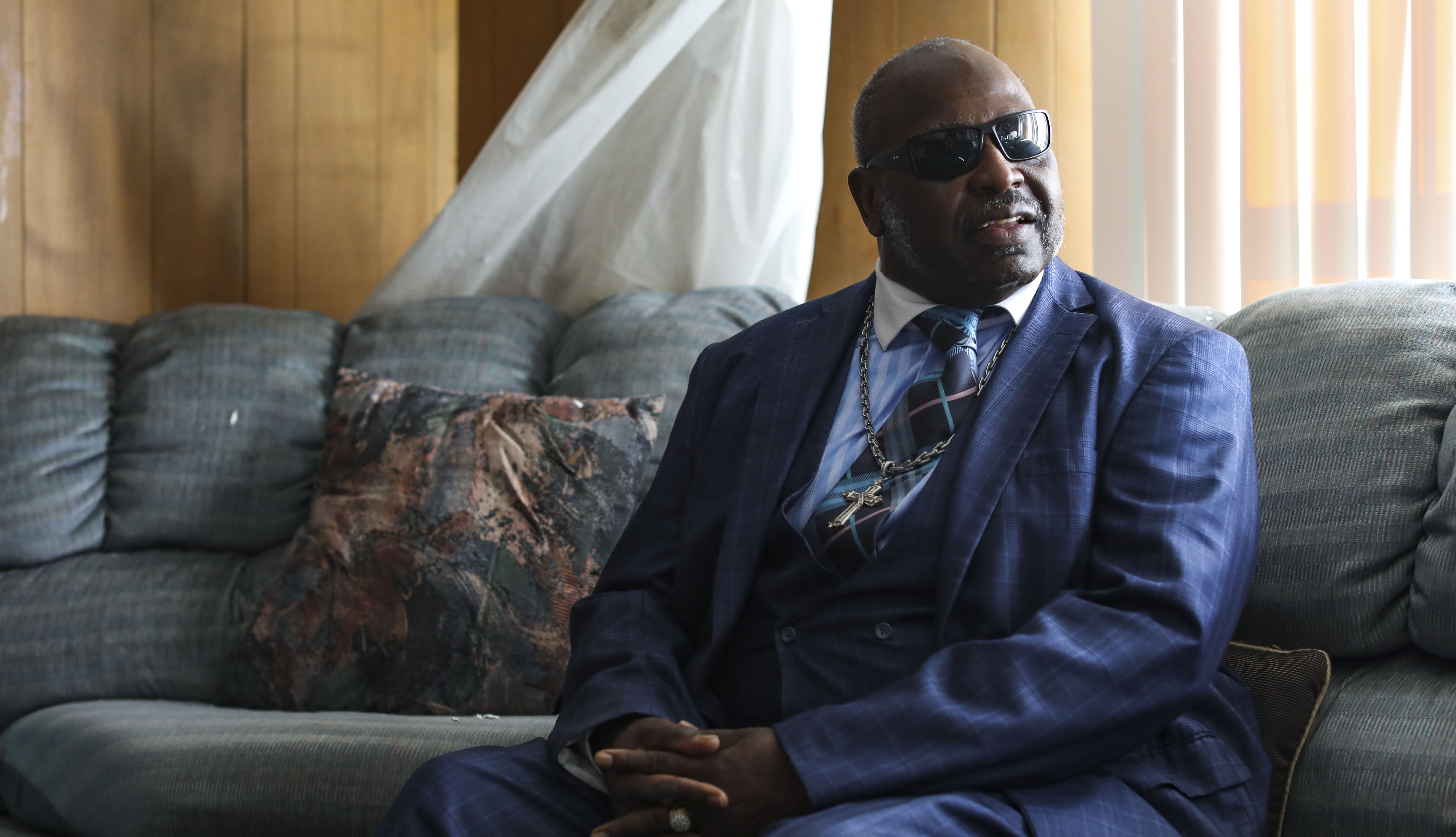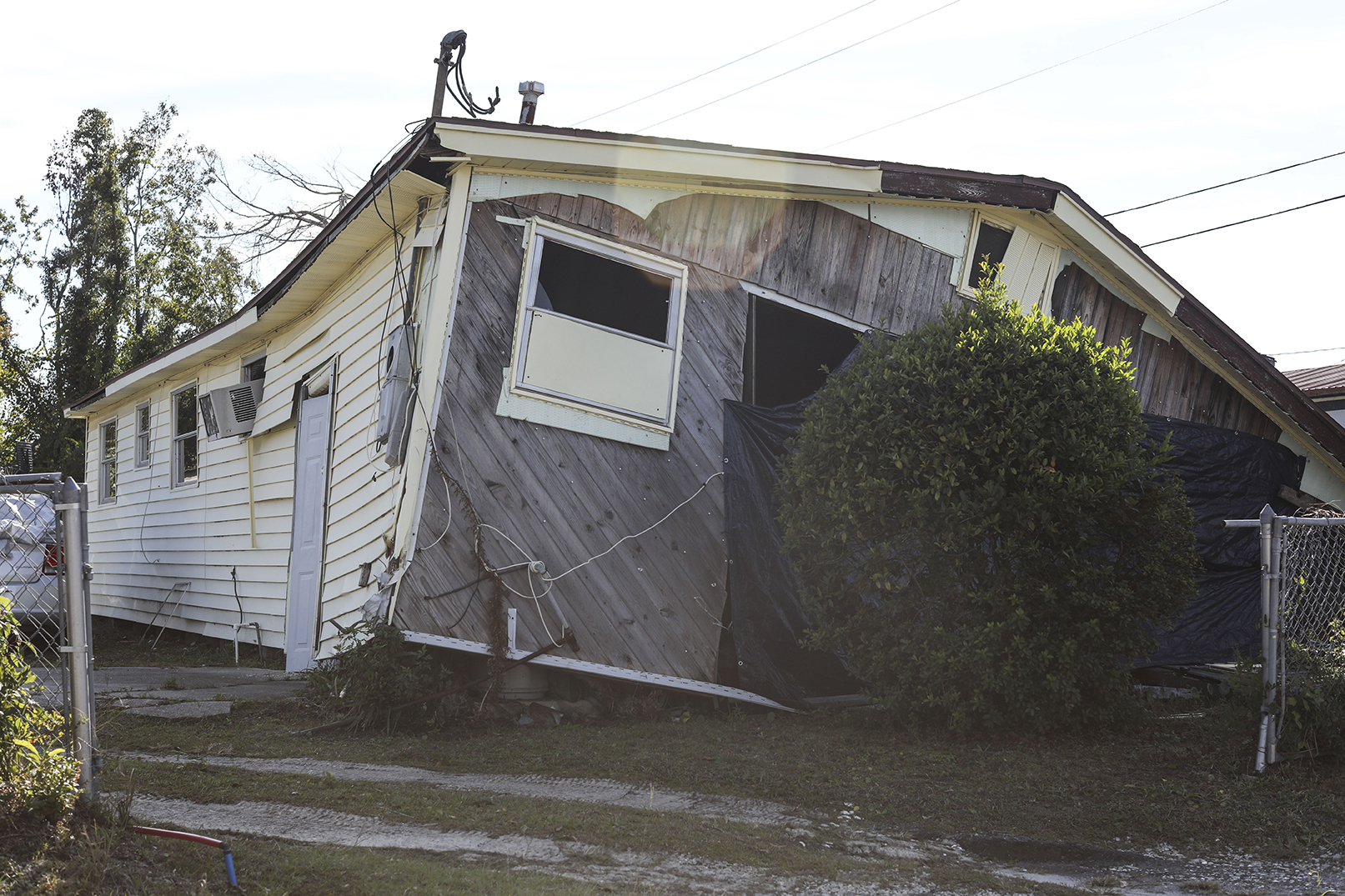AARP Hearing Center

Born and raised in Panama City, the Rev. Rufus Wood and his family never left home as hurricanes hurtled toward the coast. They always weathered the storms.
But in October 2018, Hurricane Michael—a Category 5 behemoth—ravaged the Florida Panhandle from his hometown to Mexico Beach.
“None of us expected it to be as bad as it was,” said Wood, 60, a Baptist minister and president of the Bay County NAACP. “These storms are getting larger and more intense.”
Wood managed to replace his home’s drywall and fix his roof, two of many such post-storm repairs paid for by AARP Foundation funding to the area. But other neighbors lost everything and haven’t returned.
Even as it helps residents recover from Michael’s devastation, AARP Florida will encourage lawmakers returning to Tallahassee on Jan. 14 to ensure that communities are more resilient and better prepared for future disasters.
Among its goals: boosting funding for affordable housing, making sure all nursing homes have backup generators and limiting utility rate increases by power companies that argue the hikes are needed to cover the cost of hurricane preparations.

“It’s easy to get complacent,” said Jeff Johnson, AARP state director. “It’s imperative that the state direct extra resources toward building back the affordable housing stock in the Panhandle.”
When the Legislature returns next month, AARP will urge lawmakers to increase money for affordable housing.
Hurricane Michael destroyed an estimated 500 housing units for older adults in Bay County alone, according to the Bay County Council on Aging.
“There is no available housing for seniors displaced by the storm,” said council CEO Beth Coulliette, adding that many older homeowners have no insurance and can’t afford repairs.
AARP is pushing for more low-interest loans to developers who build affordable housing for low- and middle-income families. The Legislature has appropriated $200 million for 2020, a $76 million increase but less than the $338 million Gov. Ron DeSantis (R) had recommended.
Utility rate hikes a concern
AARP Florida also plans to advocate on behalf of consumers to control the cost of rate increases electric utilities impose to cover improvements aimed at better protecting power lines and other infrastructure against storms.
In May, the Public Service Commission approved an emergency request by Gulf Power to add an $8 surcharge to monthly bills to cover repairs to the electric grid following Hurricane Michael. AARP argued that the surcharge is too high.
The association will monitor the implementation of a new law passed this year that allows utilities to raise rates to pay for underground electric lines.
AARP is also pressing officials to make sure all Florida nursing homes and assisted living facilities comply with a state law that requires them to have backup power generators.
More than 80 percent have met the requirements. Others have cited difficulties in obtaining permits, getting equipment and storing fuel, said Mary Mayhew, head of the Florida Agency for Health Care Administration. “We will continue to hold facilities accountable.”
Tom Scherberger is a writer living in Tampa.
More Florida News































































